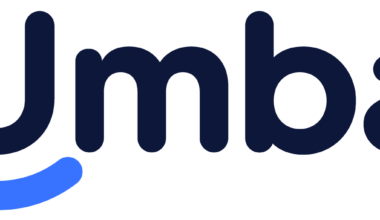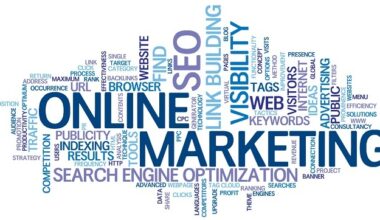Securing financing is a milestone for many entrepreneurs aiming to start or grow their business. Understanding how to get a business loan can open doors to a range of opportunities, such as expanding operations, purchasing equipment, or increasing working capital. Each lender has distinct requirements and offerings, making it vital for business owners to thoroughly research and prepare before applying for a loan.

Navigating the process of obtaining a business loan requires attention to detail and a solid grasp of financial fundamentals. An applicant’s creditworthiness is often under scrutiny, and presenting organized financial records can make a significant difference. Additionally, lenders may consider the business’s revenue and history to determine loan eligibility.
It’s essential to explore various business loan options and find the right fit for the company’s needs. Loans can range significantly in terms of size, terms, and rates. Crafting a compelling business plan can also be beneficial in securing financing, as it demonstrates to lenders the viability of the business and how the loan will be utilized to achieve growth.
Understanding Business Loans
Securing a business loan is a strategic move to finance growth initiatives or maintain cash flow. This section will delve into the different types of business loans available and assist businesses in pinpointing their specific financing needs.
Types of Business Loans
Business loans come in various forms, each designed to suit different business requirements. Term loans are a common form, providing a lump sum of cash upfront which is paid back over a set period. SBA loans, partially guaranteed by the Small Business Administration, offer long repayment terms and competitive interest rates to small businesses. A line of credit affords flexibility, allowing businesses to draw funds as needed up to a certain limit.
For specific needs, equipment financing can be utilized to purchase new machinery, with the equipment itself often serving as collateral. Invoice factoring is a mechanism where a business sells its accounts receivable to a third party to gain immediate capital. Lastly, merchant cash advances give businesses a quick influx of money in exchange for a portion of their future credit card sales.
Determining Your Loan Needs
Before embarking on the application process, businesses should conduct a thorough analysis to ascertain the amount and type of financing required. They need to consider the purpose of the loan—whether for expansion, inventory purchase, or stabilizing cash flow. It’s also imperative to evaluate repayment ability while considering future financial projections. A precise understanding of needs will guide businesses in selecting the most appropriate loan option, ensuring manageable debt levels and alignment with business goals.
Evaluating Your Qualifications
Before applying for a business loan, one must assess their financial viability through two critical metrics: creditworthiness and the financial health of their business. Lenders will meticulously review these aspects to determine risk and loan eligibility.
Credit Scores and History
A borrower’s credit score significantly impacts the ability to secure a business loan. They need a robust personal credit score, generally above 690, alongside a strong business credit score to enhance their eligibility, particularly for government-backed SBA loans. Lenders examine both these scores to gauge the borrower’s track record of managing credit. For example, a history of timely payments and responsible credit use bolsters an applicant’s profile.
Business Revenue and Financial Health
Lenders require a thorough examination of an applicant’s annual revenue and broad financial health, which includes reviewing financial statements and tax returns. Here, substantial annual revenue indicates to a lender the business’s capacity to service the loan. Financial statements reveal the profitability, expenses, and operational efficiency, while tax returns provide a verified record of financial performance. A lender might look for a minimum annual revenue threshold, so it’s essential to have these documents accurate and up-to-date.
Preparing Your Loan Application
Before diving into the specifics of the loan application process, it’s critical to acknowledge the importance of preparation. A well-prepared application greatly increases one’s chances of securing a business loan. This includes having a solid business plan with realistic financial projections and gathering all the necessary documentation.
Business Plan and Projections
A business plan serves as a roadmap for your company and is vital to your loan application. It should outline the business’s objectives, strategies, and how it plans to achieve profitability. Under this section, include financial projections that provide a forecast of future revenues, expenses, and cash flows. These projections demonstrate to lenders that you understand the financial dynamics of your business and have a clear plan for its future.
Necessary Documentation
The loan application process is documentation-intensive and requires accuracy and thoroughness. One will need to compile various forms of documentation, which may include legal documents such as business licenses and articles of incorporation. Additionally, financial statements such as profit and loss statements and recent bank statements are typically required to substantiate your business’s financial health and track record. It’s important to review all documentation for completeness and clarity before submission.
Choosing the Right Lender
When seeking a business loan, it’s crucial to select a lender that aligns with your company’s needs and financial status. Factors like interest rates, lender credibility, and loan terms play a significant role in the decision-making process.
Traditional Banks vs. Alternative Lenders
Traditional banks are often the first option business owners consider for a loan. They usually offer lower interest rates and more comprehensive financial services. However, they have stringent eligibility criteria including credit score requirements and business financial history. On the other hand, alternative lenders, which include online lenders and credit unions, provide more flexibility and quicker funding. They are more accommodating to businesses with a short history or lower credit scores, but this may come at the cost of higher APRs and additional fees.
Understanding Loan Terms and Fees
Thoroughly assessing loan terms and fees is vital when choosing a lender. The APR (Annual Percentage Rate) encapsulates the annual cost of the loan including interest and fees, offering a clear picture of the overall cost. Apart from APR, one should review other charges such as origination fees, prepayment penalties, and late payment fees. Borrowers should also consider whether a fixed or variable interest rate is more suitable for their situation. For those seeking government-backed loans, an SBA loan is a viable option, and the SBA’s Lender Match tool can help connect with SBA-approved lenders. It’s important to understand how these factors affect monthly payments and the total cost of the loan over its duration.
After Securing the Loan

Once a business loan is secured, the attention shifts to effective financial management and the strategic utilization of funds to ensure the loan serves as a foundation for business success.
Loan Repayment Strategies
Managing loan payments is crucial for maintaining good credit and financial health of the business. Companies should have a clear repayment plan in place. This includes setting up automatic payments to avoid late fees and considering the following options to optimize their loan repayment schedule:
- Extra Payments: If feasible, making more than the minimum payment can reduce the loan’s lifespan and total interest paid.
- Refinance: When interest rates drop or creditworthiness improves, refinancing can result in better loan terms.
- Loan Management Software: Utilize digital tools to keep track of due dates, payment amounts, and loan balances.
Leveraging Loans for Business Growth
Securing a loan opens avenues for expanding business operations. Using funds to increase revenue-generating activities is imperative. An equipment loan, for example, enables a business to purchase new machinery, which can lead to increased production capacity and revenue potential. Intelligent investment of a working capital loan can alleviate bottlenecks in operations and finance day-to-day expenses, allowing the business to thrive. A business line of credit, on the other hand, offers flexible financing which can be used when cash flow is uneven or for unexpected expenditures, ensuring the business can continue to run smoothly and capitalize on growth opportunities. Properly leveraging loans is central to a business’s strategic growth and long-term stability.
Frequently Asked Questions
Securing a business loan requires meeting specific lender criteria. This section answers common questions about obtaining such financing, including requirements for startups, options for poor credit, government loan steps, LLC application processes, bank loan qualifications, and credit score minimums.
What are the requirements to secure a startup business loan with no initial capital?
Lenders may require a solid business plan and financial projections. They might also look at personal credit and industry experience when no initial capital is present.
What options are available for businesses with poor credit seeking financing?
Businesses with poor credit might explore alternative lenders who offer financing options that consider revenue and business potential rather than just credit score.
What are the typical steps to obtain a government loan for starting a business?
Applying for a government loan typically involves researching available programs, ensuring eligibility, submitting a detailed business plan, and completing required government forms.
How can an LLC apply for a business loan, and what are the prerequisites?
An LLC must provide its business and financial records, EIN, and sometimes personal credit information of the members. The business’s operating agreement and organizational documents are also commonly required.
What are the qualifications for small business loans from banks?
Banks typically require a strong business credit history, a minimum annual revenue, collateral, and a comprehensive business plan. They may also assess the owner’s personal credit.
What is the minimum credit score necessary to be eligible for a business loan?
While it varies by lender, many banks consider a score above 600 to 650 as the minimum for a traditional business loan. However, some loan programs may have lower requirements.










